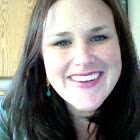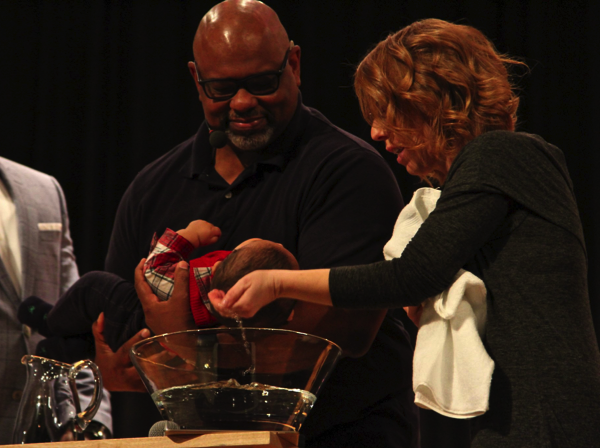 Rev. Rose Lee-Norman is Associate Pastor of Family Ministry at Sanctuary Covenant Church in Minneapolis, Minnesota and has served there for eight years. She is pursuing a Doctor of Ministry in Transformational Leadership at Boston University’s School of Theology. She lives in North Minneapolis with her husband Ryan. They have been married eleven years and have two daughters, Esme and Isla.
Rev. Rose Lee-Norman is Associate Pastor of Family Ministry at Sanctuary Covenant Church in Minneapolis, Minnesota and has served there for eight years. She is pursuing a Doctor of Ministry in Transformational Leadership at Boston University’s School of Theology. She lives in North Minneapolis with her husband Ryan. They have been married eleven years and have two daughters, Esme and Isla.
A few years ago I attended Legacy, the pre-Midwinter Children and Family Ministry conference. During the conference my colleagues and I enjoyed connection, enrichment, and prayer in a conference room in Louisville, Kentucky. Prior to the conference Steve Burger and his team had contacted all of the senior pastors and asked them to write a letter of encouragement for their Children and Family pastor. Interspersed throughout the conference Steve read these letters aloud, asked the pastor to share about their ministry and context, and then we prayed over each colleague. It was an extremely moving experience.
When Steve announced my name and began to read, I felt a bit of nervousness. I preferred not to be the center of attention, though at that time was increasingly becoming more comfortable with my voice. The first words he read from Pastor Dennis were, “Pastor Rose…” While I listened intently I was moved that every time Pastor Dennis referred to me in the letter he used pastor as a descriptor. At the end of the letter I shared how much I loved serving at Sanctuary Covenant Church in Minneapolis, MN and how it has been a context of significant development for me and a space where my ministry dreams have come to fruition in many ways. After I shared we began to pray.
With Pastor Dennis’ words ringing in my ears, tears of thankfulness and appreciation began to flow. Following the prayer I opened my misty eyes to find I was not the only one teary-eyed. I saw many other women moved by the words of my senior pastor. When I went to sit down many women met me with various comments, such as,
“Wow, your senior pastor really gets it.”
“He calls you Pastor!”
“He so willingly lets you lead and preach.”
Humble, servant leaders like Pastor Dennis are needed in order for authentic, biblical partnerships between men and women in ministry to flourish. I know a majority of my male colleagues in the ministerium believe women are called as pastors, have gifts to lead in pastoral ministry, and want to be an advocate with women. Even some churches have joined in the “Four More Commitment” and that is a necessary beginning step. But active inclusion, faithful partnership, and yielding of one’s male power in the Church looks like what Pastor Dennis has done for years at Sanctuary Covenant Church. It involves verbally affirming women in church ministry and the female pastor(s) on staff. It includes providing supportive and healthy space for women’s voices through preaching, teaching, and leading. It means inviting women into networks and spaces they might not otherwise be included in. It embodies a humble disposition for a partnership to develop in healthy ministry practice.
I am deeply thankful for Pastor Dennis Edwards’ godly example and humble leadership. I write all of this because Pastor Dennis, after more than three decades of pastoral leadership is concluding full-time pastoral church ministry as he accepts an appointment at Northern Seminary teaching New Testament studies. While I envy his students there, I am thankful for the discipleship of Pastor Dennis. Because of his servant leadership and pastoral shepherding I know I do not need male pastors to approve of my calling or be my voice for me. Instead I know what a healthy partner in ministry looks like and I am empowered to hold my other male colleagues in ministry accountable to their beliefs of female inclusion in pastoral ministry. I hope you will join me in praying for Rev. Dr. Dennis Edwards in his faithful service in full-time church ministry and his needed voice and scholarship in Christian academia.
“Therefore if you have any encouragement from being united with Christ, if any comfort from his love, if any common sharing in the Spirit, if any tenderness and compassion, then make my joy complete by being like-minded, having the same love, being one in spirit and of one mind. Do nothing out of selfish ambition or vain conceit. Rather, in humility value others above yourselves,not looking to your own interests but each of you to the interests of the others.”
Philippians 2:1-4
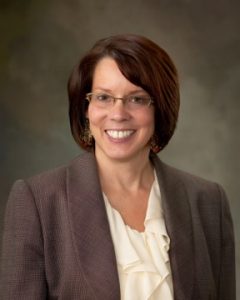 Susan Cosio is an ordained Covenant pastor, spiritual director and board-certified chaplain. She serves on the Pacific Southwest Conference (PSWC) Executive Board and is the creator and facilitator of a contemplative retreat for women in ministry called, “Echo: Women Who Hear and Respond to God’s Call.
Susan Cosio is an ordained Covenant pastor, spiritual director and board-certified chaplain. She serves on the Pacific Southwest Conference (PSWC) Executive Board and is the creator and facilitator of a contemplative retreat for women in ministry called, “Echo: Women Who Hear and Respond to God’s Call.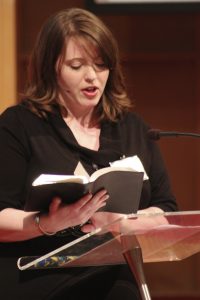 Pastor Devyn Chambers Johnson’s “Four More Commitment” Facebook Challenge has gone viral in the past week. If you haven’t heard it yet,
Pastor Devyn Chambers Johnson’s “Four More Commitment” Facebook Challenge has gone viral in the past week. If you haven’t heard it yet, 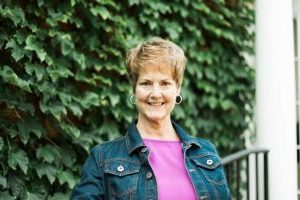 Debra Auger was called out, by a mentor, as being in “the middle of life” when attending seminary, which is, now, nearly twenty years ago! Even though a “late bloomer” she has had the opportunity to serve in a variety of roles from her current one at NPTS as the Dean of Students and Community Life for over a decade and before that, for six years, as a faculty member and Director of Ministry Arts at Covenant Bible College in Ecuador. She earned a doctor of ministry in spiritual formation and direction at Garrett Evangelical Theological Seminary and is an associate professor of ministry. Her most significant work, though, has been raising her four kids and discovering life with her partner and husband, Bob.
Debra Auger was called out, by a mentor, as being in “the middle of life” when attending seminary, which is, now, nearly twenty years ago! Even though a “late bloomer” she has had the opportunity to serve in a variety of roles from her current one at NPTS as the Dean of Students and Community Life for over a decade and before that, for six years, as a faculty member and Director of Ministry Arts at Covenant Bible College in Ecuador. She earned a doctor of ministry in spiritual formation and direction at Garrett Evangelical Theological Seminary and is an associate professor of ministry. Her most significant work, though, has been raising her four kids and discovering life with her partner and husband, Bob.